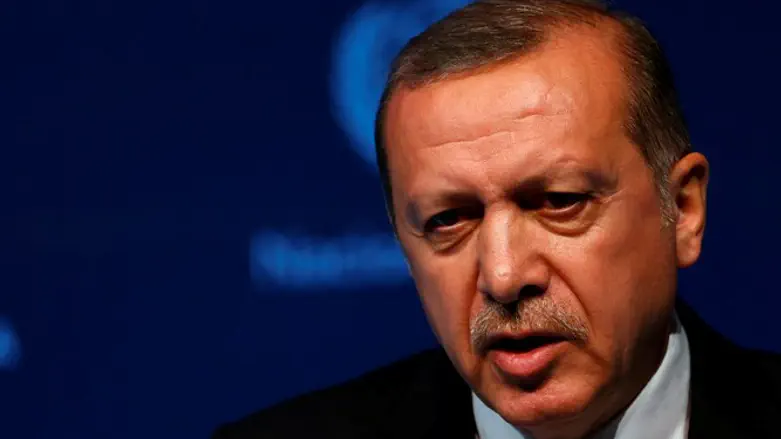
Syrian President Bashar al-Assad accused his Turkish counterpart Recep Tayyip Erdogan, a fierce critic, of exploiting a failed coup to "implement his own extremist agenda," in an interview published
Thursday.
Speaking to the official Cuban Prensa Latina agency, Assad declined to be drawn on whether he would have liked to see Erdogan ousted in last week's coup attempt.
Erdogan has regularly called for Assad to leave office since the Syrian conflict erupted in March 2011, and Damascus accuses Turkey's government of support for "terrorism".
"We don't interfere, we don't make the mistake to say that Erdogan should go or stay. This is a Turkish issue and the Turkish people have to decide," Assad said, according to a transcript of the interview on Syria's state news agency website.
"But what is more important than the coup d'etat itself, we have to look at the procedures and steps that are being taken by Erdogan and his coterie recently," he said, referring to measures including the mass dismissal of judges and teachers.
"He (Erdogan) used the coup d'etat in order to implement his own extremist agenda, Muslim Brotherhood agenda, within Turkey, and that is dangerous for Turkey and for the neighbouring countries, including Syria," Assad said.
Turkey has pressed a crackdown on suspects accused of staging last week's failed coup, detaining or sacking over 50,000 soldiers, police, teachers and officials. Ankara has also imposed a state of emergency.
Despite once-warm ties, Syria and Turkey have become arch-foes since Erdogan sided with the opposition against Assad when the uprising began.
The main political body of the Syrian opposition, the National Coalition, is based in Turkey, which also hosts millions of Syrian refugees.
Damascus accuses Erdogan's government of arming opposition groups and allowing jihadists to flood across its borders into Syria.
As news broke of the attempted coup on July 15, there was celebratory gunfire in some government-held cities in Syria.
More than 280,000 people have been killed in Syria since the war began, and successive attempts to find a political solution to the conflict have failed.
Assad criticized the United Nations, which has appointed a series of envoys to seek a negotiated end to the war, saying it was "an American arm".
"Those mediators are not independent," he said, referring to the UN's current peace envoy Staffan de Mistura, and his predecessors Lakhdar Brahimi and Kofi Annan.
"They reflect either the pressure from the Western countries, or sometimes the dialogue between the main powers, mainly Russia and the United States," he added.
"There is no United Nations role in the Syrian conflict, there is only Russian and American dialogue."